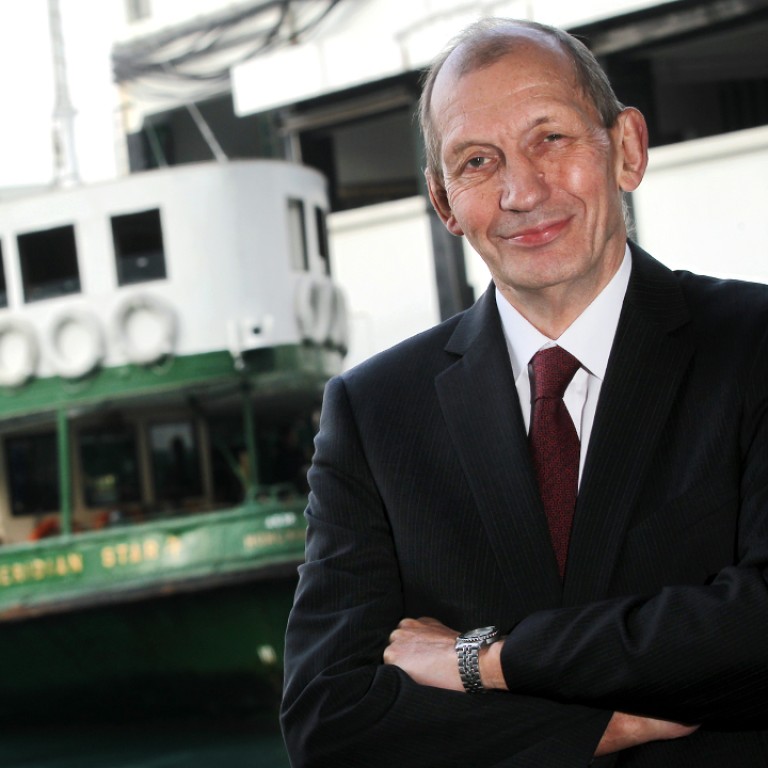
Hong Kong harbourfront advisor vows watchdog would learn from ‘past mistakes’
Tight government funding controls for Harbourfront authority would set it apart from West Kowloon Cultural District and Urban Renewal Authority problems, Nicholas Brooke tells
Government will tightly control funding of the future harbourfront authority as the new watchdog wants to start with a clean slate and avoid “past mistakes”, its top advisor said in the run-up to the statutory body’s establishment.
The authority would not receive all the HK$10.2 billion earmarked for its operation at one go and was not required to be self-financing.
This was to demonstrate to the public that its financing model would be “completely different” from that of the West Kowloon Cultural District or the Urban Renewal Authority, said Harbourfront Commission chairman Nicholas Brooke in an interview with the Post. The commission submitted its proposal to the Development Bureau two weeks ago.
READ MORE: HK$10.2 billion body proposed to develop Hong Kong’s harbourfront sites
“It’s an allocation for waterfront enhancement,” Brooke said. “The money will stay within the government.”
Injected with massive one-off endowments, the two agencies described as “independent kingdoms” were criticised for failing to deliver the art hub project on time and for being too commercially focused in selecting areas for redevelopment.
Brooke said that, in learning from the past, the harbour authority would be required to seek approval from lawmakers every time it asked for funding to develop a waterfront site.
The authority was expected to develop eight sites in its beginning years, covering the newly reclaimed land in Central, Wanchai and those left idling in Hung Hom and Kwun Tong, at a total estimated capital cost of HK$10.2 billion.
According to the commission’s proposal, self-financing was only a “long-term aspiration” and not a necessary principle. It implied that the government would also fund part of the operational expenditures estimated at HK$375.5 million a year.
READ MORE: Turn Hong Kong’s harbourfront into an urban haven for people, rather than cars
Brooke said the waterfront could become too commercialised if it needed to be self-financing at all times: “We want tranquil areas, parks, where we can just sit, play, ride a bike and let the kids move about.” He added that these were crucial aspects of a waterfront and not income-generating in nature.
The city’s waterfront was managed in the past by various departments and the government’s red tape had been attributed to its bland design. The idea of having a one-stop, powerful harbour authority was raised in the chief executive’s policy address in 2013.
The authority was expected to be run by a governing board with broad-based representation, with either the chairman or the vice-chairman being a government official.
In light of last year’s controversy surrounding the government’s plan to entrust the management of the public promenade Avenue of Stars in Tsim Sha Tsui to New World Development for another 20 years, Brooke said the future authority could consider a shorter contract period ranging from six to 15 years, depending on the amount of investment.
READ MORE: Controversial renovation work on Hong Kong’s Avenue of Stars was approved illegally, according to legal challenge
“The reality is if you are going to bring vibrancy, different flavours and excitement to the waterfront, you have to involve the private sector,” he said.
Brooke said the statutory body had a “reasonable chance of success” in getting the legislation passed by lawmakers despite intense filibustering by pan-democrats.
He urged the government to present the bill to the Legislative Council this year, adding that only the authority could develop a set of by-laws for the waterfront: “We need a management model that you do allow bikes, dogs, sitting on grass.”
But a source close to the government said it would take some time to build public confidence in setting up another statutory authority. “Before the authority is set up, the [Harbourfront] Commission could first be given some executive powers to take on a few waterfront projects.”
But Democratic Party lawmaker James To Kun-sun said the government needed strong leadership to steer waterfront projects instead of a new authority, else it would be “just another bureaucracy”.

